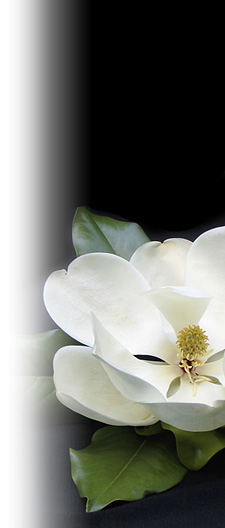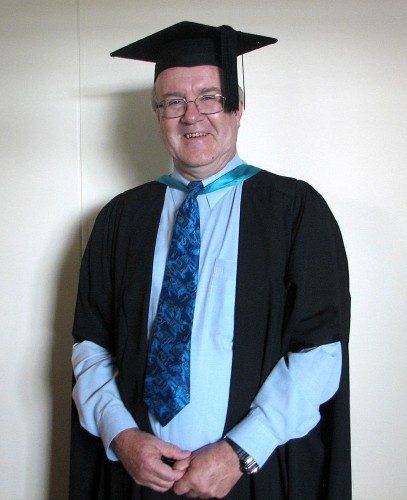I have graduated
After three challenging and difficult years I have finally graduated.
I now have completed my Master of Arts (Creative Writing) degree.
It has been an interesting journey of discovery. I’ve always regretted not having a higher degree to go with my basic teaching qualifications. I had resigned myself to the fact that such a lofty degree was beyond me. I limited my thinking, putting myself down in the process.
On reflection, I probably thought the same about my writing. I’d never be good enough to get published. I’d never make it as a writer. No one would want to read what I wrote.
Through sheer determination – and the encouragement of family and friends – I’ve proved myself wrong on all counts.
- I have passed my degree – and with a distinction too.
- I have a large and growing readership of my three blogs.
- I have been published in recent years in a range of magazines, journals and anthologies.
The best is still to come.
Good writing.
When is the best time for writing?
This question came to my mind a few weeks ago. When is the best time for writing? On reflection, I would guess that I could get as many answers as there are writers reading this post. We are all different, and that means we will all have individual methods of writing, including times where we concentrate on our literary pursuits. There is no right answer, nor will one approach suit everyone.
If you are a professional writer, say a journalist, you will have no choice. Your editors will expect your writing to be done on demand, usually with a non-negotiable deadline. Even freelance writers will have strict time-lines for submission. Those who write for magazines or who are writing novels may have publishers ringing them asking when the manuscript will appear on their desk.
For the vast majority of writers – from hobbyists through to professionals like novelists – deadlines are usually not as pressing, or may be absent entirely. I’m certainly in this latter group. While I am trying to establish myself as a full-time, professional writer, I am not relying on my writing for financial support. Any income is a bonus. So I have the luxury of writing – or not.
Although I don’t have to produce income generating writing, I try to be as professional as I can in my approach to my writing life. I usually try to get a few hours in every morning, a few more hours in the afternoon and often several more in the evening. Several times a week I will relax and allow myself some television, or reading. I will also take time out to read during the day, especially when I take a break for a cuppa. With all the writing I have done over the last seven years (since retiring from school teaching) I find I can now generally write on demand. Doing my Master of Arts in Creative Writing over the last three years has certainly helped me develop this skill; it’s amazing how motivated one can be when an assignment is due the next day.
I used to say that I don’t do mornings. That attitude came from having a job to go to, where there was no option. Now I have the option to write, or not, I find that it is no longer an issue. I’ve even woken at 5am and have written over a 1000 words before breakfast. This is quite out of character for me, but the stillness of the early morning is very conducive to creative writing. Sometimes the words really flow late at night and I’m tempted to write on into the wee hours. At my age this becoming less and less attractive; I need the sleep!
I guess what I’m trying to say – in a very long winded way – is that we all have to find what works for us. Experiment with different approaches, and different times of the day and see what works best. The time of day doesn’t really matter. What matters is that you are writing. Every day.
I’d love to hear what works best for you. Leave you suggestions in the comments, thanks.
Good writing.
Seven things I have learned while doing my degree
I received a phone call from my supervising lecturer yesterday with the good news that I’ve passed my Master of Arts (Creative Writing) degree.
And with a Distinction, too.
After three years of intensive, hard and sometimes frustrating work, I finally get to wear the funny hat and gown in a few months’ time. It has been a difficult and testing time, but there have been many highlights and fun times in there as well. My final thesis paper was a 40,000 word novel for children plus a 10,000 word exegesis essay on the research, influences and processes of writing. You can read more about the process in a series of articles here. Now I start the next phase in the process; trying to find a publisher to give my precious novel a good home. This could prove to be the hardest part of all.
So what have I learned?
Doing my degree has taught me some valuable lessons:
- Writers can always improve: no matter how much you think you know about writing, you can always get better.
- Writing is hard work: I have put in literally thousands of hours of writing, rewriting, editing and proofreading into my essays, assignments and novel.
- Writers need persistence: I must admit there were times when I almost gave up, when the task seemed too much or health issues intervened. By persisting I was able to finish the race.
- Writers learn to write by writing: there is no other way. Write, write, write – and your writing skills will develop.
- Rewriting is as important as writing the first draft: too often I have been satisfied with the attitude my first or second draft of a story or poem. Most first drafts are rubbish. My novel went through an incredible 17 drafts before I was truly happy with it.
- Editing is a part of the creative process: I used to hate editing my stories. I found it tedious and boring. I wanted to be rid of the story and to get on with the next one. Editing is an essential part of the writing process; ignore this stage and your writing will remain mediocre – and unpublished. I still don’t love editing, but I have come to appreciate its importance.
- Proofreading is an essential writing skill: editors and publishers are almost unanimous in their chief gripes about writers, and this one is almost always near the top of their list. If you don’t proofread your writing before sending it off to a publisher you stand a very poor chance of having the work published.
I could go on, but these seven things stand out. I probably could add patience too, because that lesson is still coming. Sure, I have had to wait a long time to get my final results, but the wait to hear from a publisher is sure to be much longer, and then the wait to hold the book in my hands may be even longer. But as they say, good things come to those who wait.
And if patience is a virtue, then I must be very virtuous.
Good writing.
Further reading:
 In due season: poems of love and loss by Valerie Volk is a very special book. It is beautifully presented with delightful photographs illustrating many of the poems.
In due season: poems of love and loss by Valerie Volk is a very special book. It is beautifully presented with delightful photographs illustrating many of the poems.